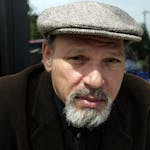"The Hurt Locker" was supposed to alleviate the pain.
When the film was named best picture at the 2010 Academy Awards and Kathryn Bigelow became the first woman to triumph as best director, Hollywood finally appeared ready to integrate the boys' club.
It didn't happen. Since that milestone, not a single woman has been Oscar-nominated for best director. Of the 250 highest-grossing movies of 2014, just 17 were helmed by females.
This year doesn't look any more promising. Only Elizabeth Banks' "Pitch Perfect 2" and Sam Taylor-Johnson's "Fifty Shades of Grey" have cracked the top 25 — and don't expect either to generate many red-carpet invites during awards season.
"After 'Hurt Locker' did women become complacent?" said actress and filmmaker Illeana Douglas, who explores that topic and more in "Trailblazing Women," TCM's monthlong tribute to female directors. "We may have thought we arrived and then blinked. Now we're back to being marginalized."
It isn't the first time a breakthrough has turned out to be a blip.
The festival, which consists of a full slate of movies every Tuesday and Thursday in October, preceded by Douglas-led discussions with historians and filmmakers, opened this week with a tribute to Alice Guy-Blaché, a largely forgotten force despite being an early pioneer in French cinema.
"She was making films alongside the Lumière brothers, but we never hear of her," said Douglas, best known for her on-screen work in "Grace of My Heart" and her off-screen relationship with former boyfriend Martin Scorsese. "That's part of the mystery we're going to present."
Other nights this month are turned over to African-American independents (Julie Dash), international breakthroughs (Jane Campion) and the new generation (Sofia Coppola). It's part of a three-year initiative with Women in Film to raise awareness of the lack of gender equality in the industry.
"When women are missing from the equation, you get stereotypes," Douglas said. "When it comes to male-female relationships in film, male-directed movies tend to have cookie-cutter female characters. She's the shrill wife or the sexpot. The dynamics change when there's a woman's voice in development."
Power in producing?
The discrepancy was a hot topic at last month's Toronto International Film Festival, which was attended by Lucinda Winter, the Minnesota Film Board's president.
"There's still a belief that movies are made for guys," she said. "'The Hurt Locker' was a woman interpreting a war story very effectively, and yet the mentality exists that a woman's vision can't speak to men and boys."
Women are faring better in the ranks of producers. About 23 percent of the top 250 highest-grossing movies of 2014 included female producers, according to a study done at San Diego State University. About 7 percent of those film were directed by women.
But hiring a woman to oversee the budget isn't the same as having a woman be the creative driver, said Minnesota filmmaker Christine Walker, whose producing credits include the Allen Ginsberg bio "Howl" and "Darling Companion," starring Kevin Kline and Diane Keaton. Both were directed by men.
"Unless you're one of the uber-producers — and many of those are big stars or big directors themselves — the producer's role is always in the service of the director," Walker said. "People don't have a problem with women in support roles even if they wield a great deal of influence."
Big moves, small screen
The TV landscape seems to be more promising.
"Scandal" creator Shonda Rhimes is considered one of the most valuable players in the game today. Recent Emmys for best TV movie and best miniseries went to "Bessie" and "Olive Kitteridge," respectively, both of which were directed and written by women.
And while Douglas has had success in TV, she admits that it's just not the same thing.
"When I watch something like 'Olive,' I feel more like it's the lead actress' journey than the director's. It's not the same as watching 'The Piano,' where I can really feel Jane Campion's presence," said Douglas, who hopes to parlay her success producing and writing Web shorts into work as a feature-film director. "TV kind of feels like the consolation prize."
Neal Justin • Twitter: @nealjustin






